Are you looking to streamline your business operations and enhance collaboration with your vendors? A Vendor Data Sharing Agreement is the perfect solution for fostering transparency and trust in your partnerships. This essential document outlines the terms of data exchange, ensuring both parties are on the same page regarding privacy and usage. To explore how to draft an effective request for such an agreement, keep reading!
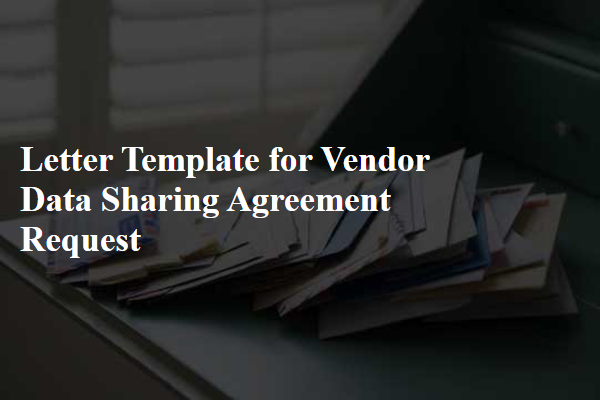
Clear purpose and objectives
A vendor data sharing agreement aims to establish a framework for the secure exchange of sensitive information between parties, ensuring compliance with data protection regulations, such as GDPR (General Data Protection Regulation) or HIPAA (Health Insurance Portability and Accountability Act). Key objectives include defining the types of data exchanged (e.g., personal, financial), outlining the responsibilities of each party regarding data security, and specifying the duration of data retention and sharing. Additionally, the agreement should detail procedures for incident reporting, access controls, and the use of shared data for specific purposes, such as enhancing services or improving product offerings. Establishing clear terms protects both parties and strengthens business relationships by fostering trust and transparency.
Data security and privacy measures
A data sharing agreement focuses on vendor relationships regarding data transmission, emphasizing data security and privacy measures essential for protecting sensitive information. Organizations should implement encryption protocols, such as AES-256, to safeguard data during transit and at rest. Compliance with regulations like GDPR (General Data Protection Regulation) in the European Union and CCPA (California Consumer Privacy Act) in the United States governs data handling practices, ensuring personal information protection. Regular audits and risk assessments are crucial for identifying vulnerabilities within the data exchange processes. Establishing clear data access controls, such as role-based access, helps limit exposure to sensitive information, while ensuring effective incident response plans are in place to address potential data breaches swiftly.
Roles and responsibilities
A vendor data sharing agreement outlines the roles and responsibilities of all parties involved, establishing the framework for sharing sensitive information while ensuring compliance with data protection regulations. Each vendor, such as software providers or data analytics firms, must adhere to specific obligations, including safeguarding confidential data, implementing security measures, and reporting any data breaches within stipulated timelines (e.g., within 72 hours as per GDPR). Additionally, clear delineation of responsibilities regarding data access, usage, and deletion upon contract termination is essential. This agreement serves to protect intellectual property and maintain trust between partners, especially in industries like healthcare or finance where data sensitivity is paramount. Regular audits and compliance checks must be included to ensure ongoing adherence to the defined roles and responsibilities outlined in the contract.
Duration and termination conditions
A vendor data sharing agreement outlines the necessary terms governing the exchange of sensitive information between parties involved in a business relationship. Duration refers to the specified time frame over which the data sharing arrangement is valid, often defined in months or years, allowing both parties to assess the effectiveness of the collaboration. Termination conditions detail the specific circumstances under which either party may end the agreement, typically including breaches of contract, changes in business needs, or other significant events such as insolvency or acquisition. Effective notice periods (usually ranging from 30 to 90 days) must be adhered to ensure a smooth transition while maintaining compliance with relevant data protection regulations, such as the GDPR in the European Union or CCPA in California.
Legal and compliance adherence
A vendor data sharing agreement is a crucial document to ensure legal and compliance adherence between two parties, particularly in sectors like healthcare or finance where data sensitivity is paramount. This agreement delineates the protocols for exchanging information, details the types of data involved (such as personally identifiable information or sensitive financial data), and establishes responsibilities and liabilities concerning data protection laws like the GDPR (General Data Protection Regulation in the European Union) or HIPAA (Health Insurance Portability and Accountability Act in the United States). It also specifies the duration of data sharing, security measures to be implemented, and methods for data disposal post-agreement. Furthermore, it mandates regular audits and compliance checks to mitigate risks associated with data breaches or unauthorized access. Legal clauses ensure that both parties are aware of potential penalties for non-compliance, fostering accountability and trust within the vendor relationship.
Letter Template For Vendor Data Sharing Agreement Request Samples
Letter template of vendor data sharing agreement for compliance purposes.
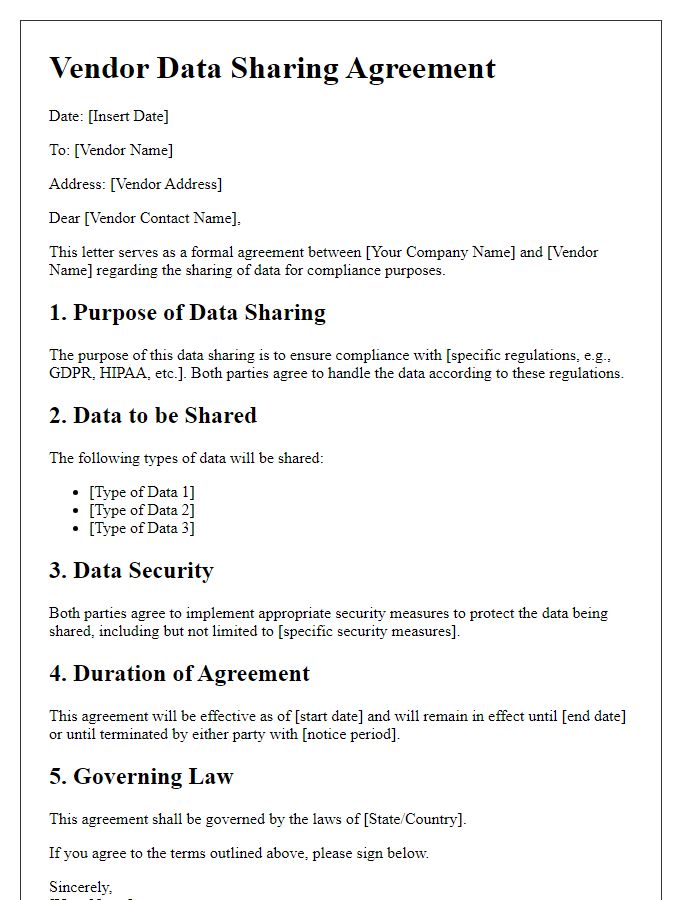
Letter template of vendor data sharing agreement for partnership collaboration.
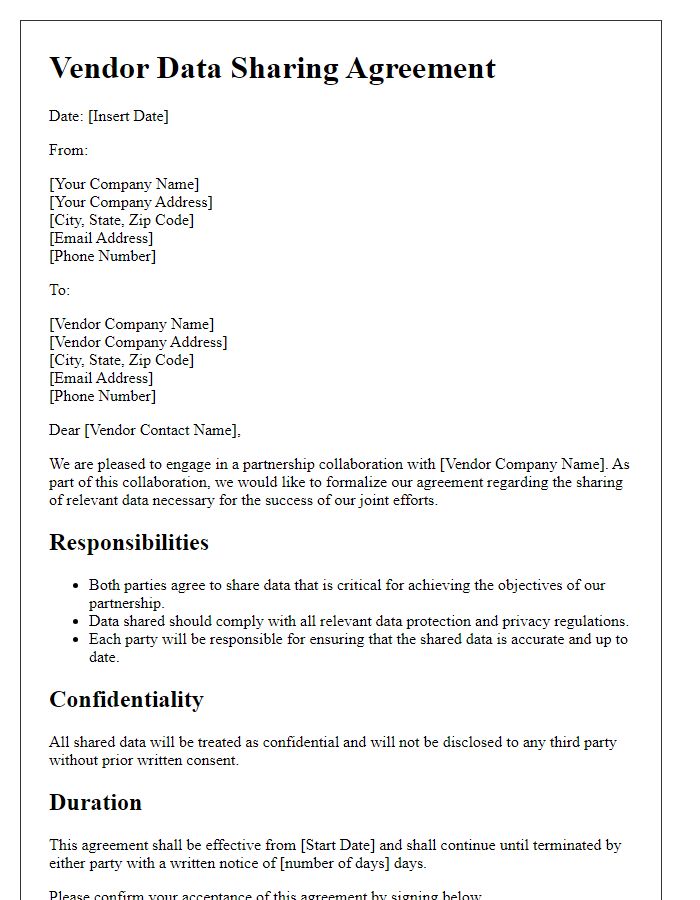
Letter template of vendor data sharing agreement for project-specific needs.
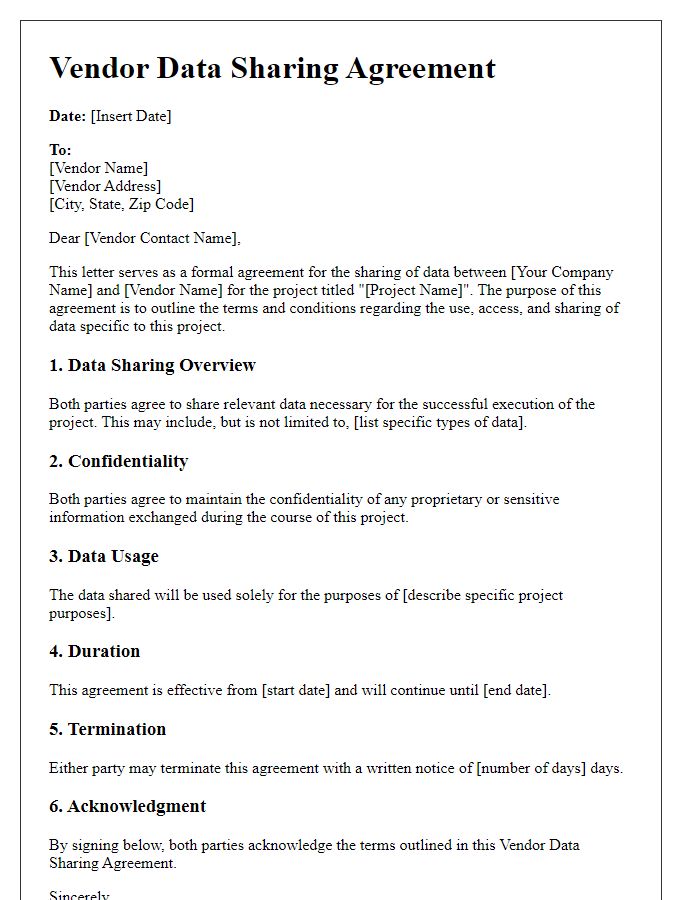
Letter template of vendor data sharing agreement for legal documentation.
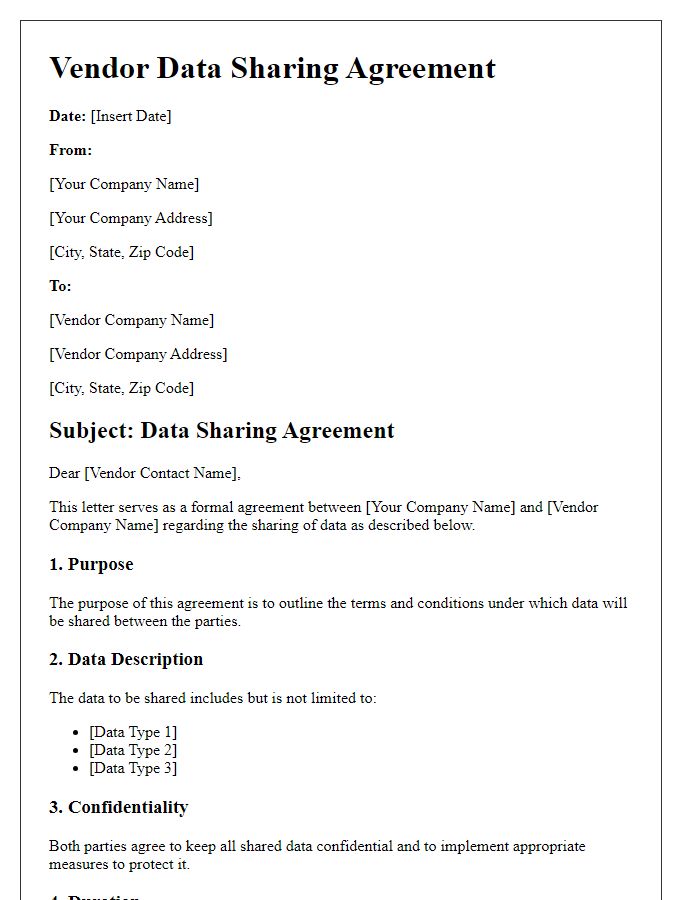
Letter template of vendor data sharing agreement for technical specifications.
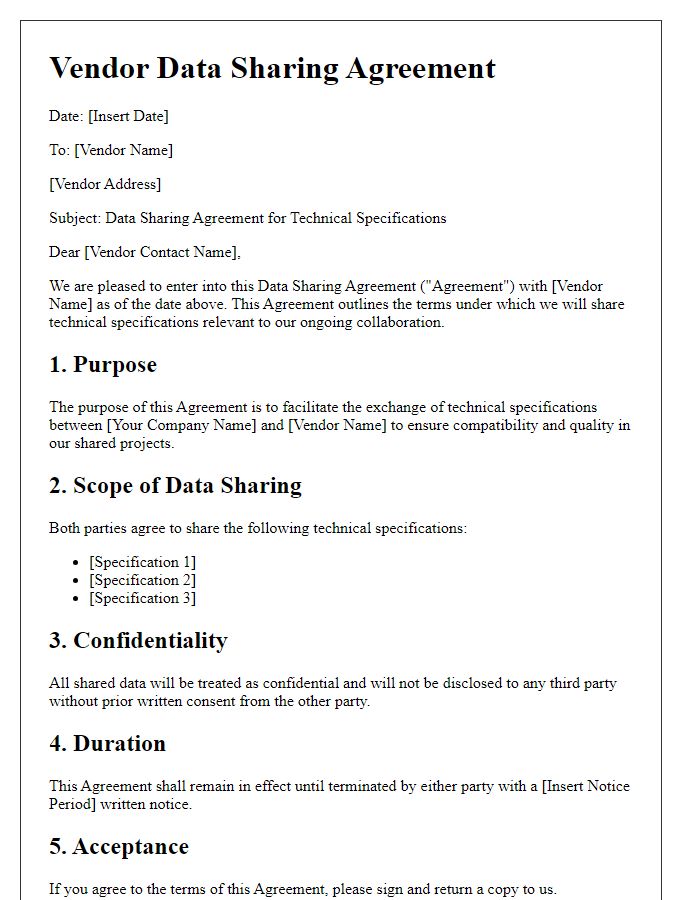
Letter template of vendor data sharing agreement for customer data management.
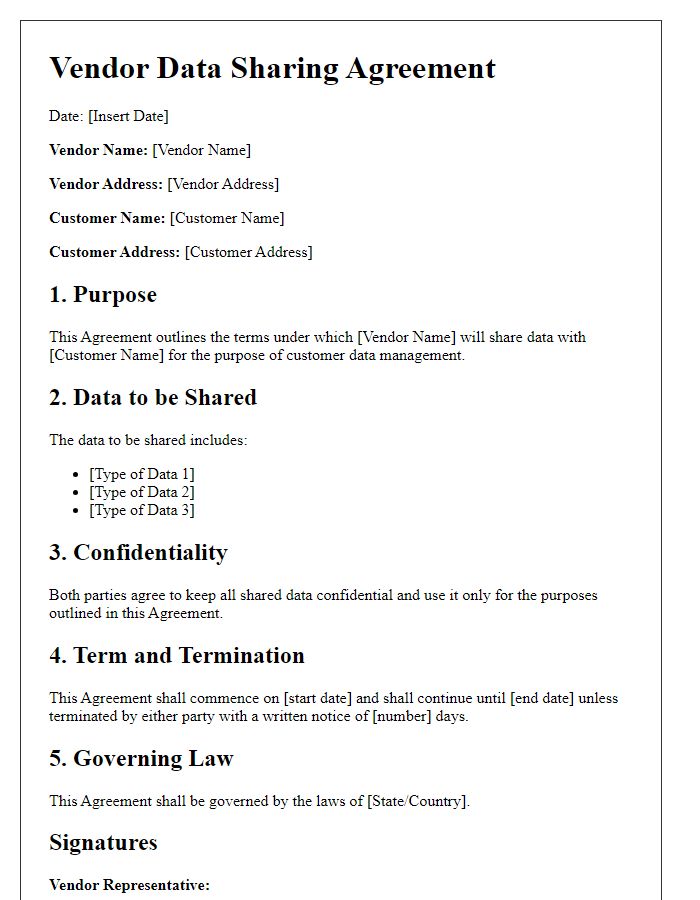
Letter template of vendor data sharing agreement for audit and monitoring.
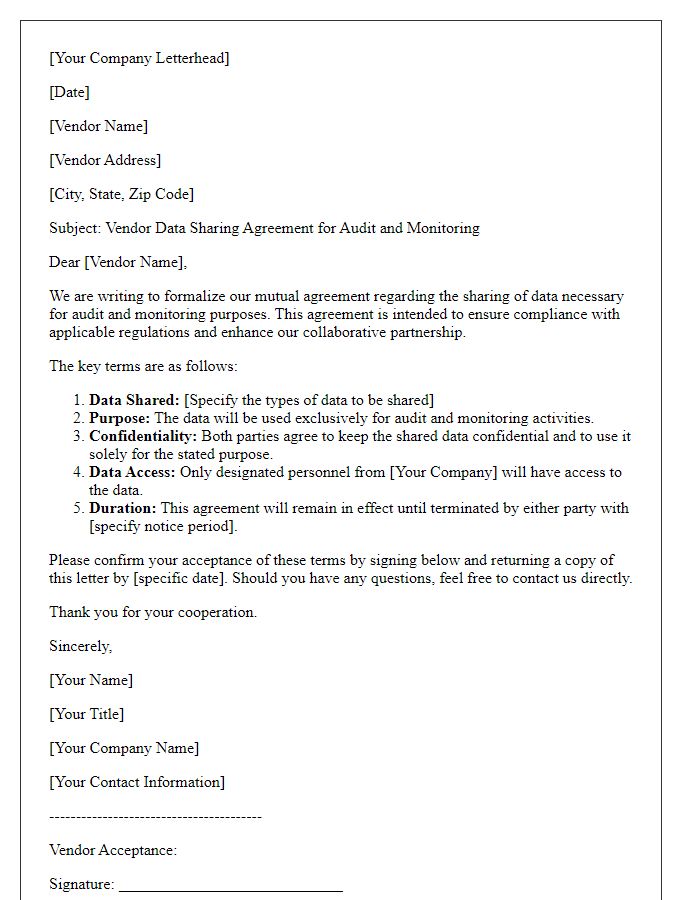

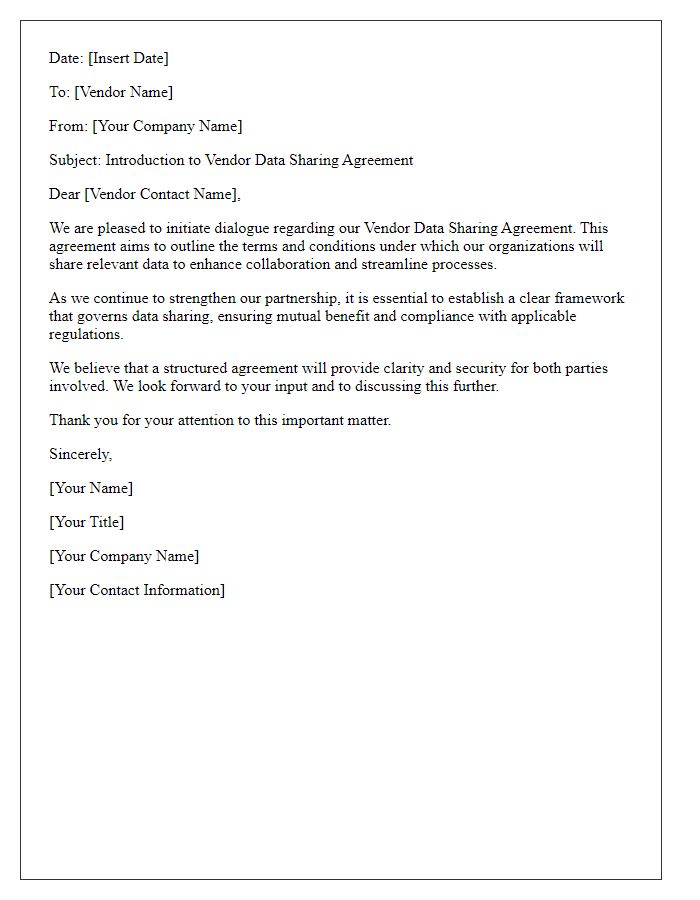
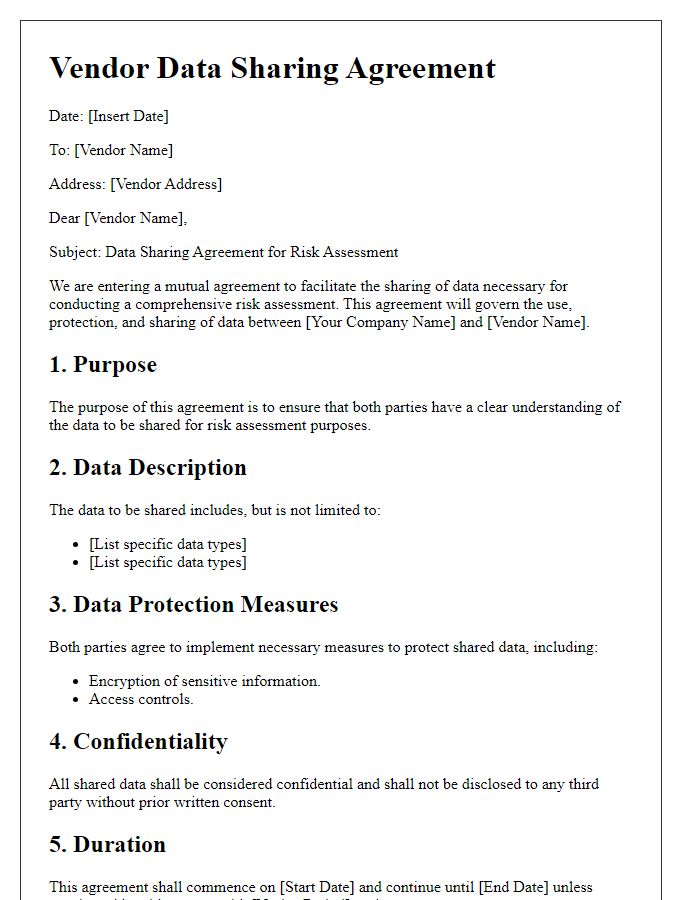
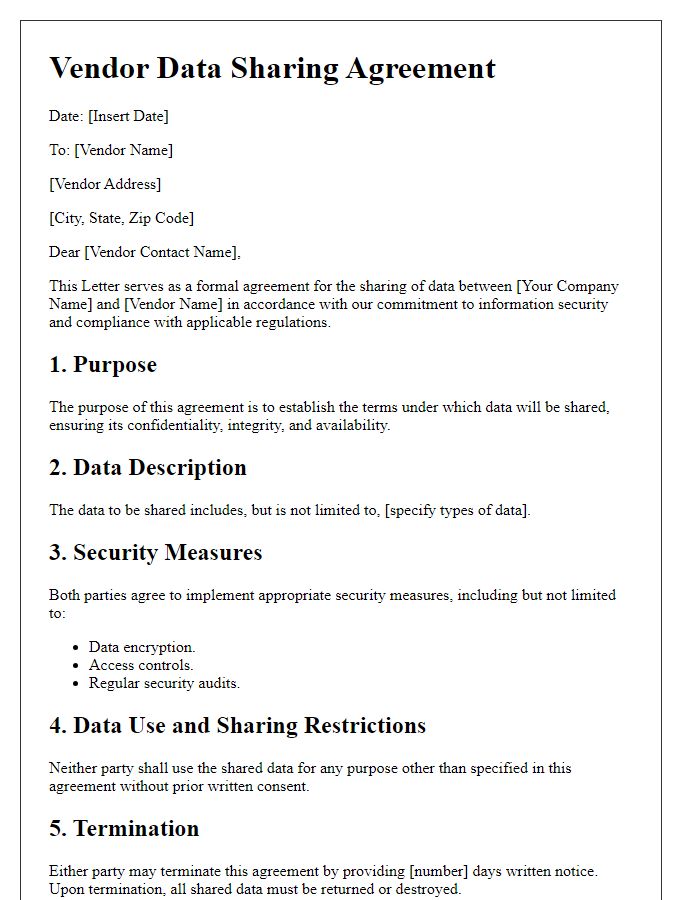


Comments